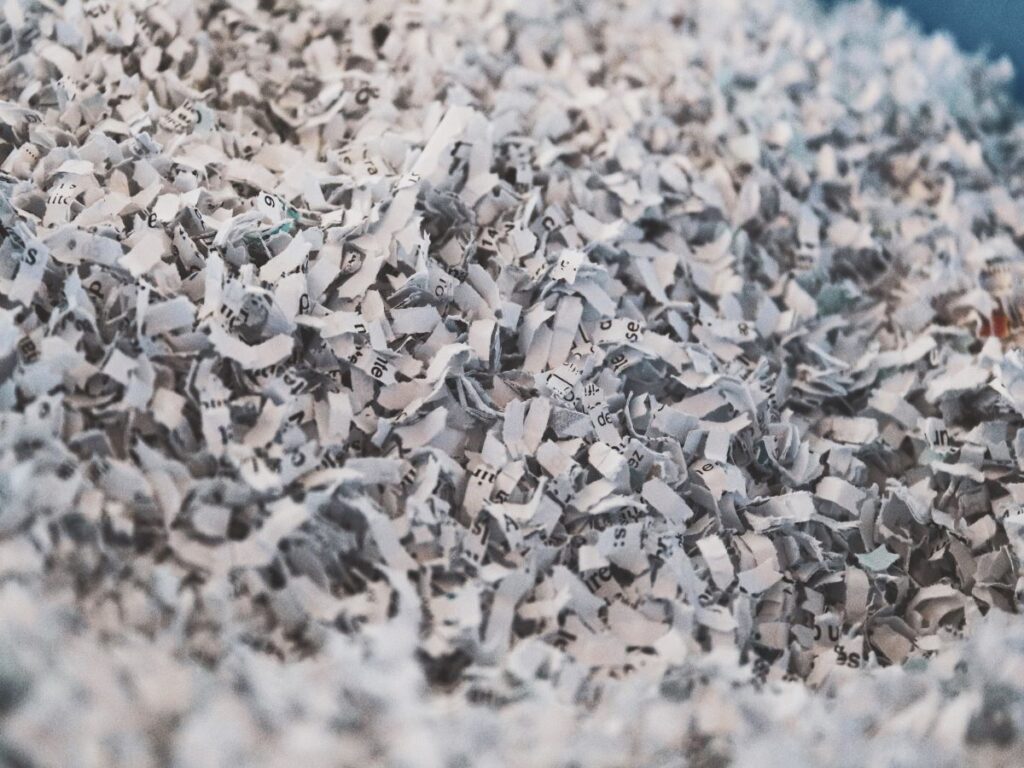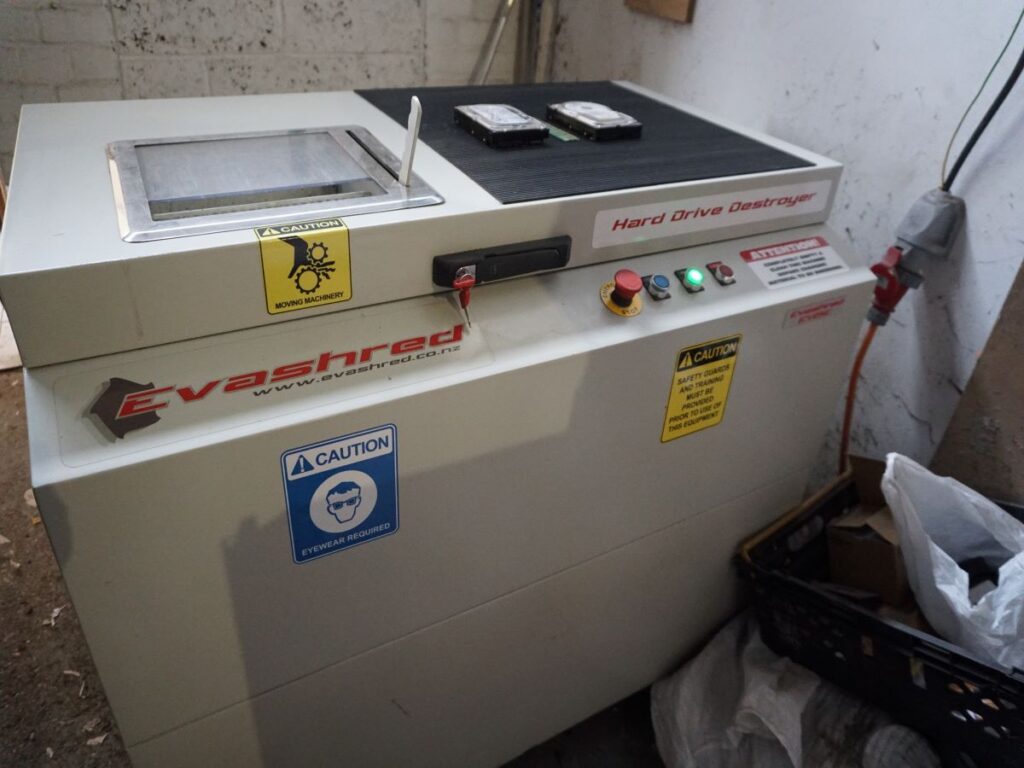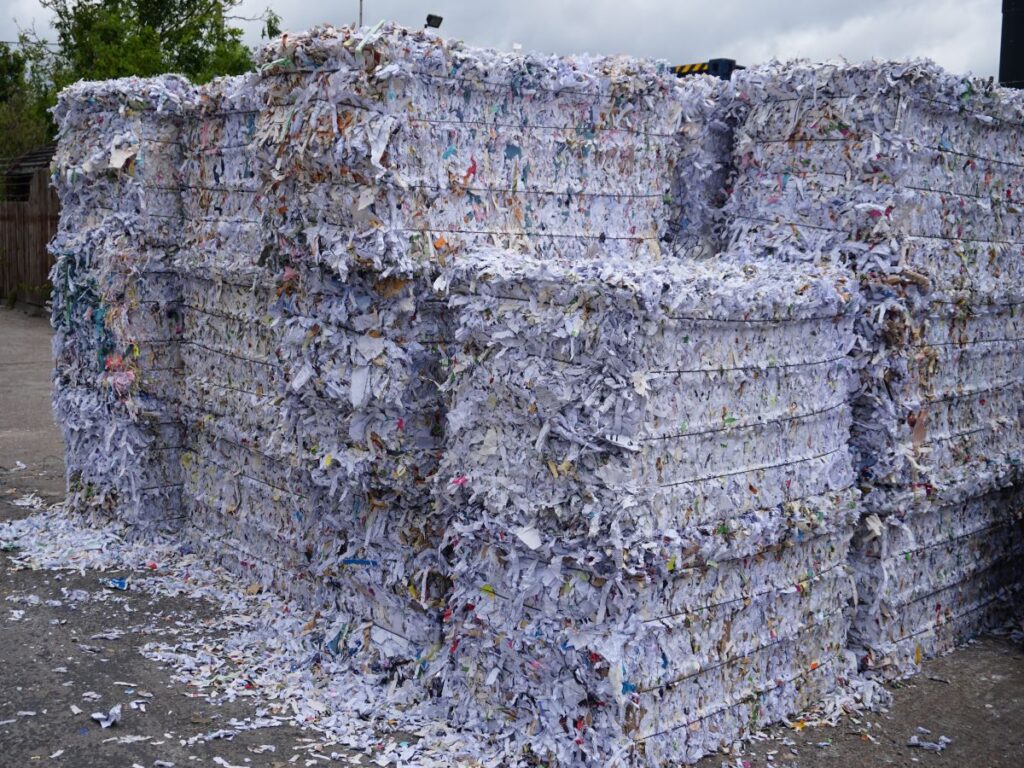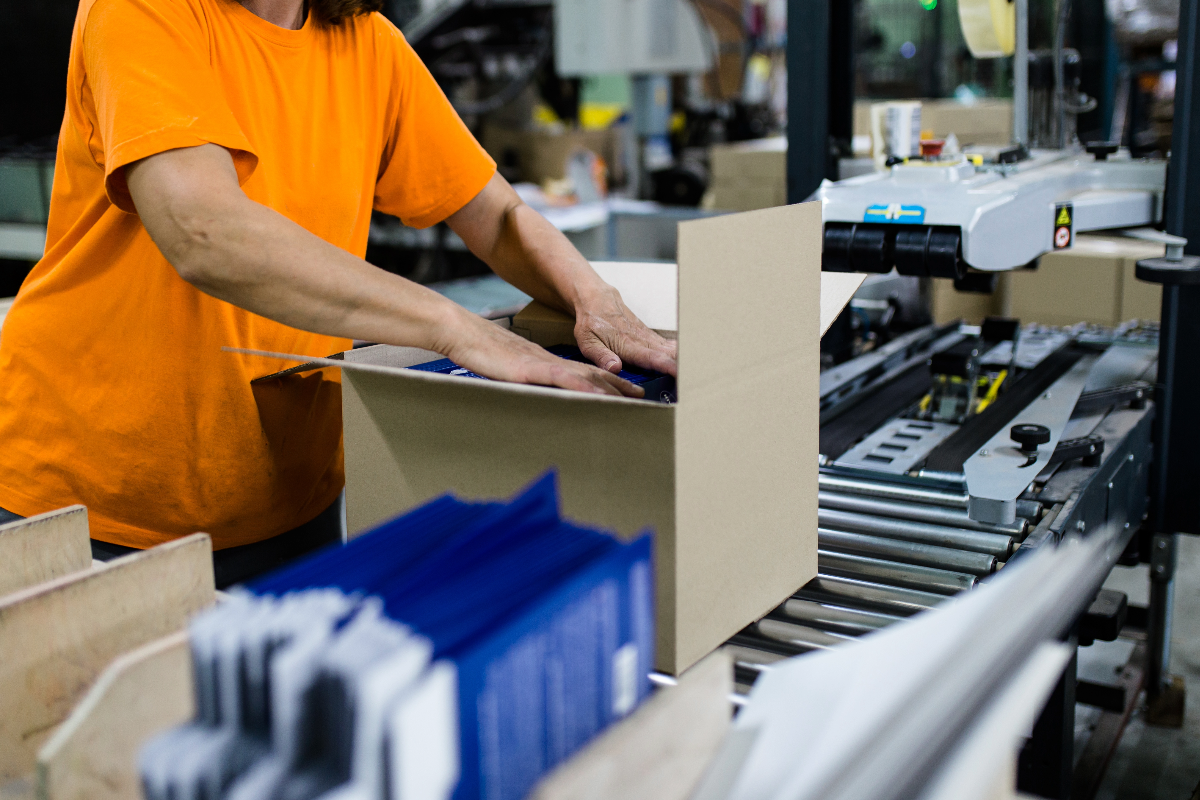BLOG
How should you dispose of confidential waste?

Identity theft and fraud is becoming more and more common across the UK. Over a quarter of the UK adult population has been impacted by fraud, with it representing over 60% of all fraud cases recorded in 2013. One of the biggest causes of this is the failure to properly dispose of confidential waste produced by businesses. Organisations are putting themselves in danger if they fail to carefully destroy their confidential documents.
What is confidential waste?
Confidential waste refers to any waste that contains private data, documents, and information. For businesses, this can include documents that contain specific information about your customers, suppliers, employees, or other stakeholders.
Almost every business will create confidential waste. Companies might frequently collect customer data, such as their phone numbers, date of birth, or financial information, which creates confidential waste that must be disposed of correctly. If this data is not destroyed, there’s the potential to harm your customers or your business’ reputation.


Why should you dispose of it correctly?
Businesses create a huge amount of confidential waste and there are dire consequences if this data isn’t managed well and disposed of properly. For example, businesses might send their confidential waste to regular waste disposal companies, but these companies may not have the security level in place to destroy confidential materials correctly. By doing this, you could be putting your business at risk of data breaches or risk facing the legal consequences of breaching data protection laws.
The Data Protection Act 1998 regulates that an organisation can be sued and even have its reputation harmed if it does not lawfully process any confidential data it collects. This is based on 7th principle published in the Act,
“Appropriate technical and organisational measures shall be taken against unauthorised or unlawful processing of personal data and against accidental loss or destruction of, or damage to, personal data“.
This principle implies that the data controller is accountable for the data until it is destroyed. Therefore, it is your responsibility to properly dispose of any confidential waste your business produces. There are serious consequences for businesses failing to comply with this Act, with the Information Commissioner’s Office (ICO) previously fining businesses up to £500,000 for breaches.
How to dispose of confidential waste?
Burning sensitive waste could be your first thought for destroying confidential documents but it’s not an appropriate way to dispose of them. There’s a chance you might leave parts of the page readable, which could lead to data leaks. It can also be incredibly damaging to the environment, and you could be fined for unlicensed burning.
Therefore, confidential waste shredding is the most reliable and sustainable solution for your business. We can collect any sensitive waste you might need destroying, whether that’s office papers, hard drives, or even business computers. In the digital age, lots of confidential data is stored electronically on hard drives or flash drives. This isn’t a problem as our industrial shredders are able to deal with this kind of sensitive information. We can schedule a regular collection for you or a one-off archive clearance, depending on your business’ needs. Once collected, our teams will destroy all your confidential waste with either an off-site or an on-site shredder.
When the data has been destroyed, we will provide you with a certification of destruction to give you the peace of mind that your information has been destroyed with complete confidentiality and compliance.
Contact us
Flame UK can help you manage your sensitive documents safely. Our services cover paper and digital was disposal, and all services comply with required standards and regulations. Find out more here or contact us to learn more about our services.




